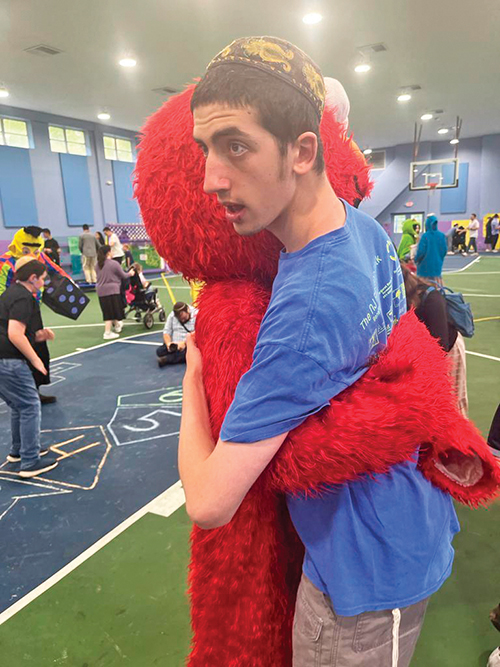
It was Erev Shabbos Chol Hamoed and Bubby and Zaidy had come a little bit early so they could set themselves up in their room. As the years have progressed, they need more and more help bringing in their things from the car and up the multiple flights of stairs. In addition, the proper lights need to be left on so they are able to move around freely if they get up in the middle of the night.
Usually, a discussion is had about the bathroom light specifically. It is essential that it stay on but it is to be expected that Shaul will turn it off. We have tried multiple strategies to deal with this issue. Different methods of covering the light switch have all proven to be ineffective. The good news is that locking the door has allowed the light to stay on throughout the night. However, the mechanism to open the locked door is a little tricky for Bobby and Zaidy to maneuver. Hence the discussion and ensuing demonstration as to how to open the lock is usually necessary before the start of Shabbos or Yom Tov.
As hashgacha would have it, this particular Shabbos, no one in the house remembered to have the aforementioned conversation. We started Shabbos, blissfully unaware of the crisis which loomed in front of us. A wonderful meal was shared by three generations of our family and then it was time for everyone to go to bed. After struggling up the stairs, Zaidy was more than a little disappointed to find that Shaul had shut off the bathroom and hallway lights in the attic.
This was not a minor issue, this was potentially one of real danger. If Zaidy were to wake up in the dark and needed to go to the restroom, one misstep could mean a nasty spill, chas v’shalom.
I have heard interviews with professional athletes where they are asked how they thrive in the most stressful situations. An answer I have heard many times is that when the game speeds up, they are able to slow it down. As I stood there listening to Zaidy trying to downplay his anxiety, Hashem allowed things to slow down for me. It was too late to call a non-Jewish neighbor to help with the light. It appeared to me that we only had one option. “I think I may have an idea.” I said to my father and I went back downstairs.
Every Friday night, for as long as I can remember, Shaul passes out in one of his parent’s beds. It is my job to wake him up, give him his medication, and then walk him to his bed. He then settles in for the rest of the night. This Friday night was no different; Shaul was once again in Rochel’s bed. However, this time, I woke him up, gave him his medicine, and took a detour as we took a walk up to the attic.
We came right in front of the bathroom light switch and I asked this half asleep, 22-year-old with moderate to severe autism, “Do we turn off lights on Shabbos?” His answer was an emphatic “no” as he switched them to the “on” position. I immediately moved him away, brought him back downstairs to his bed, and reminded him one more time that we are not to turn off lights on Shabbos.
When I came back upstairs to check on my parents, I met two very different people than had been there just a few short minutes before. They were so happy and calm — it was my greatest pleasure to be able to help them in a way that I believe was halachically permissible. When I told the story to Rochel the next day, she replied, “Great. Our own personal Shabbos goy.” To which I replied, “No, Shaul is a Shabbos yid.” Without even being cognizant of what he had done, Shaul had helped his grandparents spend the rest of their Shabbos with peace of mind.
To be fair, I am not 100% sure that what was done was on the “up and up.” At the same time, all those who have heard or experienced this story would emphatically entitle this piece, “Shaul saves the day!”
Rabbi Yehuda Minchenberg is a fifth grade rebbe during the school year and teaches Torah at Camp Regesh during the summer. At home, he (together with his wife, Laurie), is the parent of six children, four of whom have varying special needs.











